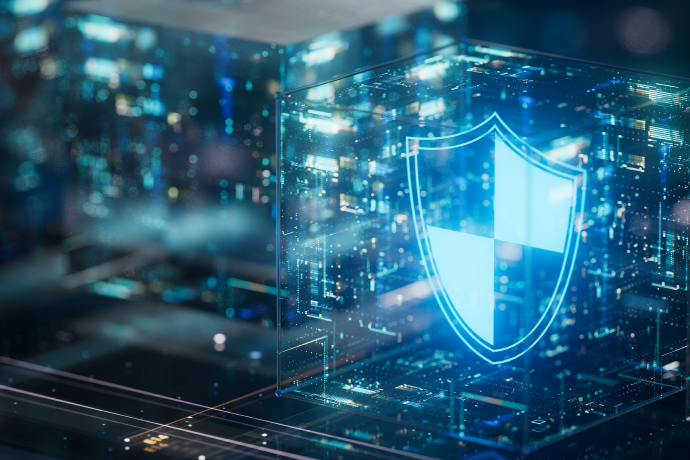Choosing The Right Managed Detection and Response Service Provider For Your Business

Safeguarding business endpoints from cyber threats is more critical than ever. Endpoint Detection and Response (EDR) solutions have become essential for companies protecting their digital assets. With the EDR market expected to reach $12.39 billion by 2029 (source: Mordor Intelligence), choosing the right managed EDR solution provider is crucial. This article highlights the key considerations for selecting the right Managed Detection and Response (MDR) service provider.
Understanding Endpoint Detection and Response
Endpoint Detection and Response integrates automated response and analysis with real-time monitoring and data collection from endpoints. EDR solutions are designed to detect, investigate, and mitigate suspicious activities and incidents on endpoints, such as laptops, desktops, and servers.
When evaluating EDR solutions, it’s essential to look for features that align with your business needs. Here are some necessary factors to consider:
• Real-time Threat Detection
An effective EDR solution should provide real-time detection of advanced threats, allowing your security team to respond swiftly and minimise potential damage. This feature is crucial in identifying and mitigating threats before they can cause significant harm to your organization.
• Continuous Endpoint Visibility
Continuous monitoring of endpoint activities ensures that your security team is always aware of what’s happening across your network. This visibility is vital for identifying unusual patterns and behaviors that may indicate a security breach.
• Automated Response Actions
Automation in threat response helps streamline remediation processes, reducing the need for manual intervention. Automated actions can quickly isolate affected endpoints, remove malicious files, and restore systems to a secure state, enhancing the overall efficiency of your security operations.
• Behavioural Analytics
Advanced EDR solutions utilise behavioural analytics to detect anomalies and potential security breaches. By analysing patterns and behaviours, these solutions can identify threats that traditional security measures might miss.
• Threat Intelligence Integration
External threat intelligence feeds keep EDR solution updated on the most recent threats. This feature ensures that security measures are proactive and informed by the current threat landscape.
• Incident Response Tools
Comprehensive incident response tools are essential for effective investigation and remediation of security incidents. These tools should empower your security team with the capabilities needed to thoroughly analyse and address threats.
Managed EDR Solutions
Managed EDR solutions offer the expertise and resources of a dedicated security team, providing continuous monitoring, threat detection, and incident response. This approach is particularly beneficial for businesses with limited internal security resources or those seeking to enhance their existing security posture.
Benefits of Managed EDR Solutions
• Expertise and Experience
Managed EDR providers bring a wealth of expertise and experience in handling various cybersecurity threats. Their specialised knowledge ensures that the business is protected by the latest and most effective security measures.
• Cost-Effective
Outsourcing your EDR needs to a managed service provider can be more cost-effective than setting up and maintaining an in-house security team. Managed solutions eliminate the need for significant upfront investments in technology and personnel.
• Continuous Monitoring
Managed EDR providers offer around-the-clock monitoring, ensuring that threats are detected and addressed promptly, regardless of when they occur. This continuous vigilance is crucial for maintaining a robust security posture.
Why Suraksha’s EDR Services?
Suraksha’s Managed EEDR offers advanced cybersecurity solutions designed to provide real-time visibility into endpoint activities. It ensures comprehensive endpoint security through a combination of cutting-edge technology and expert management.
• Real-time Threat Detection and Response
Suraksha’s EDR services swiftly identify and respond to advanced threats. This proactive approach helps reduce the dwell time of threats, ensuring that security incidents are addressed before they can escalate.
• Continuous Endpoint Visibility and Automated Response
With continuous monitoring, Suraksha provides real-time awareness of endpoint activities, ensuring that any unusual patterns or behaviors are promptly detected. Their automated response actions streamline threat remediation, reducing the need for manual intervention.
• Advanced Features and Scalability
Suraksha’s EDR services offer advanced features such as behavioural analytics, threat intelligence integration, and comprehensive incident response tools. Their user-friendly interface ensures easy management and monitoring, while the scalability of their solutions allows your business to adapt to evolving security needs.
• Comprehensive Coverage and Support
Suraksha extends its protection to endpoints in cloud environments, ensuring comprehensive coverage. Their solutions also include proactive threat hunting capabilities, compliance assurance, and zero-day threat protection.
In conclusion, selecting the right managed EDR solution provider is crucial for maintaining a robust cybersecurity posture. Suraksha’s EDR services offer advanced, real-time endpoint protection, ensuring that your business is safeguarded against the latest threats.




